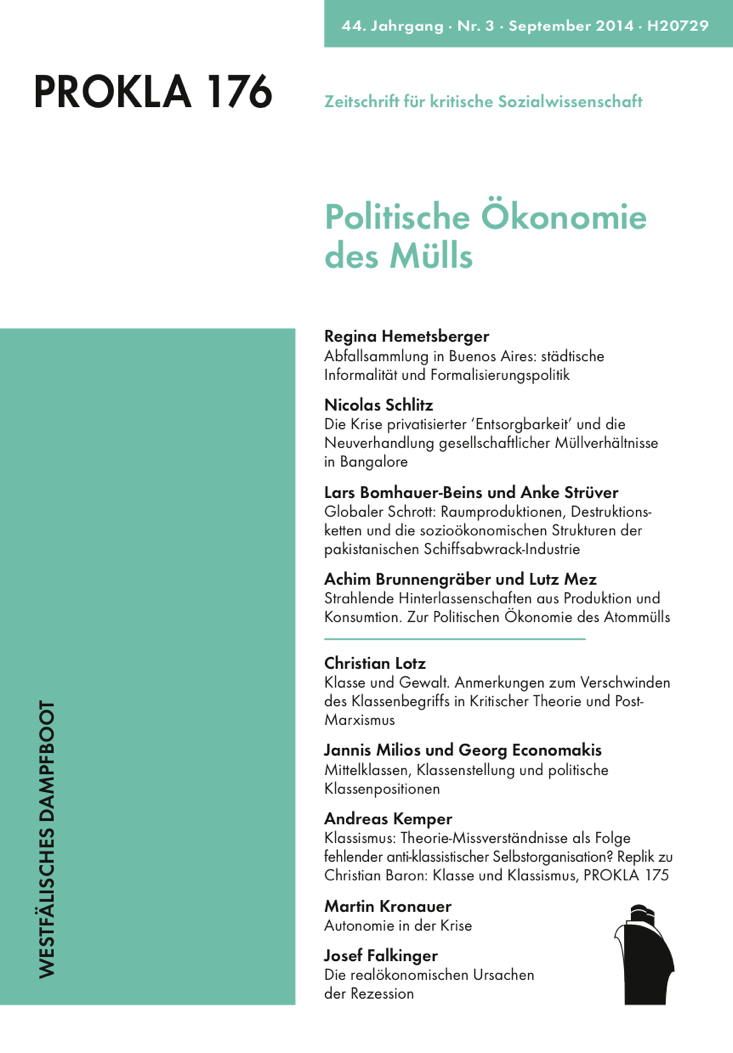Abfallsammlung in Buenos Aires
städtische Informalität und Formalisierungspolitik
DOI:
https://doi.org/10.32387/prokla.v44i176.159Schlagwörter:
Politische Ökonomie, AbfallwirtschaftAbstract
With the collapse of the Argentine economy in the late 1990s between 20.000 and 25.000 persons in Buenos Aires got involved with informal waste picking. When public pressure became too strong in 2001, the municipal and national government started to work on a plan for the implementation of an integrated solid waste management, in which private waste enterprises and waste pickers’ cooperatives shall collaborate in order to improve the city‘s recycling activities. With the new model, however, the waste pickers themselves were also taken into account as new social actors. Considering the importance of formality and informality, this paper analyses the design of the bonaerense model for in - tegrated solid waste management. First, economic-historical perspectives of theoretical con - cepts of formality and informality are discussed, followed by a review of the developments in the waste sector since 2001. Finally, light is thrown on the impact and scope of formality and informality for the integration of informal waste pickers.





